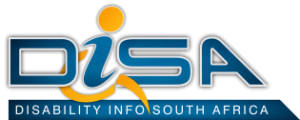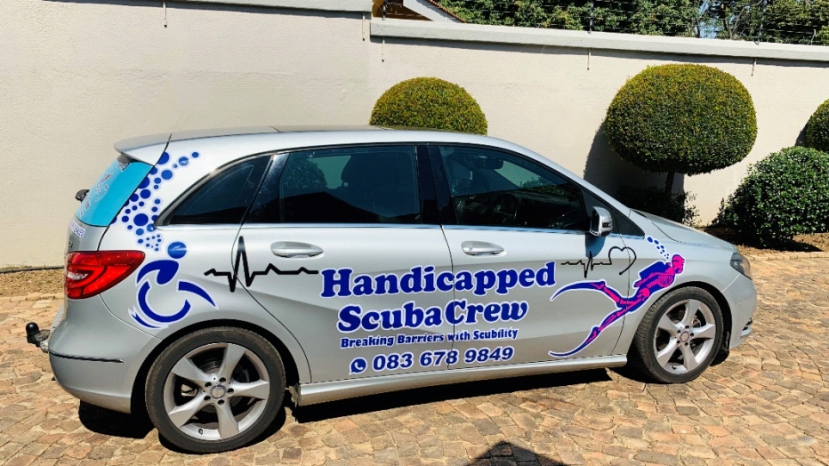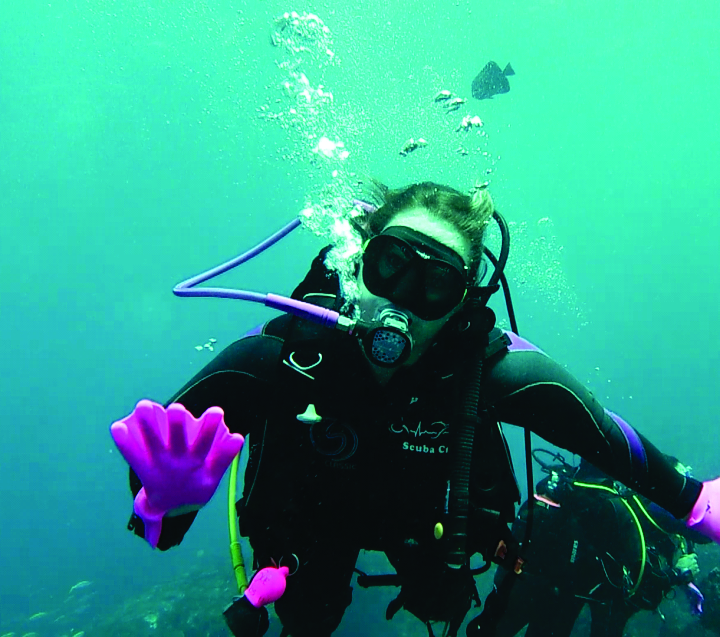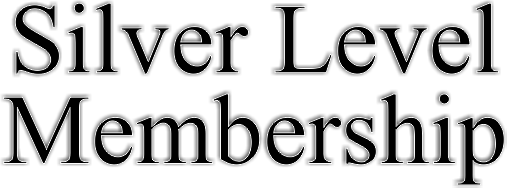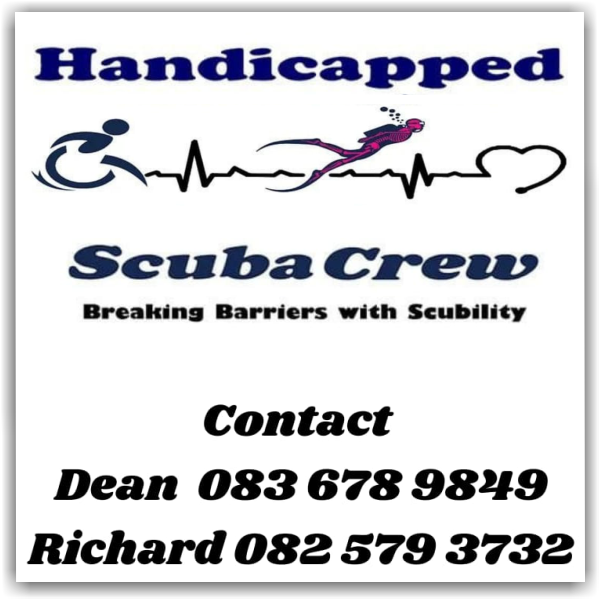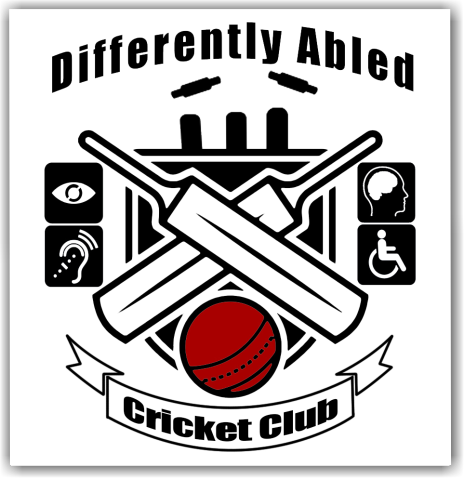Scuba Diving & Cricket
Contents: To jump to the topic you would like, click on the links below
Introduction
Both Scuba Diving and Cricket are activities/sports which can be enjoyed by many persons with Mobility Impairments, including persons who use wheelchairs despite their impairment. Both Scuba Diving and Cricket have been adapted slightly to make them available to most persons with disabilities in various countries around the world and in South Africa, through clubs and organisations such as the Handicapped Scuba Crew, which is a Nonprofit Organization and The Differently Abled Cricket Club. These sports/activities both offer a wide variety of benefits for persons with impairments but are not currently part of the Paralympics. Please read the page below to find out more about these sports and activities and clubs and organisations and how they can benefit you through these activities and other services that they provide.
Scuba Diving
Scuba Diving is a very popular recreational activity for both able bodied persons and persons with disabilities across the world, not to mention in our beautiful waters and climate of South Africa. Persons with Mobility Impairments who love the weightless feeling that they get when swimming, will enjoy Scuba Diving. The Handicapped Scuba Association promotes Scuba Diving around the world. Each year they plan Scuba Diving trips to exotic locations led by specially trained Scuba Divers and persons who use wheelchairs, ensuring that you have a safe and comfortable Scuba Diving experience.
The Handicapped Scuba Association (HSA)
The HSA was founded in 1981 by Jim Gatacre and is now the world’s leading authority on recreational Scuba Diving for persons with disabilities. The HSA had its’ genesis in 1975 at the University of California-Irvine (UCI) as a research pilot program. The program looked at self-image changes for Scuba Diving students 'with disabilities' as they are learning together with students 'without disabilities'. "The results were amazing! Everyone, with and without disabilities, grew in ways we could not measure and went on to more full and exciting lives." Gatacre, who had sustained an injury in 1972 that left his right arm with an impairment, was the prime motivation for the program. Learning to Scuba dive had such a powerful rehabilitative effect on Gatacre, that he wanted to share it with others. In 1981 he realized his dream and founded the Handicapped Scuba Association.
The Handicapped Scuba Association has it's headquarters in California, but extends its underwater educational programs worldwide, it has dedicated itself to improving the physical and social well-being of persons with disabilities through the sport of scuba diving."
Through Scuba Diving the Handicapped Scuba Association is able to:
- Improve the health and fitness of persons with disabilities by challenging their physical abilities and endurance;
- Improve the quality of life of persons with disabilities by providing opportunities to actively participate in a mainstream sport;
- "Level the playing field" between persons with disabilities and their able bodied peers by facilitating access to a sport that they, and others, thought was not possible;
- Motivate persons with disabilities into pursuing other life challenges such as education, employment, travel, sports and by allowing them to achieve at a sport that many people cannot;
- Profile the abilities and potential of persons with disabilities to mainstream society.
The Handicapped Scuba Association is made up of over 4000 underwater educators, Scuba Divers with disabilities and supporting members which are located in over 45 countries. They are dedicated to assuring that persons with disabilities are given the same opportunity to receive quality training, certification and dive adventures as the able bodied population.
The HSA operates as an independent diver training and certifying agency. "Our prestigious diver education programs and Instructor Training Course (ITC) are internationally recognized and unequaled by any other programs in the industry. Additionally we provide a variety of support services, such as Resort Evaluations and Accessible Dive Vacations. Our training materials have been translated into 10 languages, and the HSA has brought the first recreational activity of any kind for persons with disabilities to countries such as the Ukraine."
In South Africa organisations such as the Handicapped Scuba Crew promote and offer Scuba 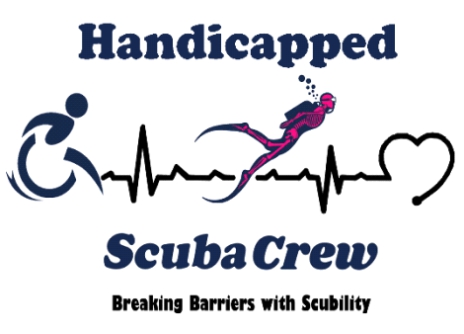 Diving for persons with disabilities, as both an activity and a form of therapy, thus improving the lives of many persons with disabilities throughout South Africa and promoting Scuba Diving for persons with disabilities.
Diving for persons with disabilities, as both an activity and a form of therapy, thus improving the lives of many persons with disabilities throughout South Africa and promoting Scuba Diving for persons with disabilities.
Handicapped Scuba Crew
Handicapped Scuba Crew is a Nonprofit Organization (Registration No: NPO 240/281) which is based in Pretoria and has a mission to break down barriers with “Scubility” – “We Use SCUBA as a tool for rehabilitation back into normal society and to make sure that persons with disabilities are given the same opportunities to receive excellent quality training, certification and dive adventures, as able-bodied divers do. We enhance the lives of all persons with disabilities and their families through the sport of SCUBA Diving. - We raise funds for all of these activities.”
In 2019 the Handicapped Scuba Crew completed more than 400 Sea Dives (Veneus include: Sodwana Bay; Aliwal Shoal; Ponta do Ouro Mozambique and the Red Sea); more than 1000 Pool Sessions and more than 40 x courses up to and including:
- Discover Scuba
- Open Water
- Advanced specialties such as deep/nitrox/night/rescue/emergency first aid /and dive master.
Handicapped Scuba Crew have worked with persons with various disabilities/conditions, including persons with mobility impairments/conditions, who have dived with us, which include:
- Persons with Spinal Cord Injuries - paraplegics and quadriplegics
- Persons with Cerebral Palsy and Multiple Sclerosis
- Amputees and persons with Spina Bifida
- Hemiplegics and Persons with Muscular Dystrophy
- Persons who have had a Stroke and Persons with Cancer
Handicapped Scuba Crew also offer these services to persons with various other conditions/impairments, including persons who are Deaf; Autistic; Blind, or have Down Syndrome; PTSD and TBI. All of which have dived with us.
Adaptive techniques enable our organization to live our ethos of everyone is equal, giving people as above an equal opportunity to experience all parts of the dives, including sitting on the pontoon if viable! The benefits of Scuba Diving are vast and include both mental and physical benefits:
- Mental advantages include increase serotonin, increased activation of different parts of the brain, improvements / miracles that should not happen. e.g. feeling goosebumps below injury on complete paralysis paraplegic.
- Physical advantages include increased mobility and blood circulation; Mobility of joints in entire body; Scuba Diving activities also free some persons from the wheelchairs they use into a weightless environment and be like everyone else.
New medical studies confirm the therapeutic benefits of Scuba Diving and the Handicapped Scuba Crew have been recognised for the work that they are doing and the benefits of Scuba Diving for persons with disabilities. Dr Wilson has used the Handicapped Scuba Crew rehabilitation methods in her International Presentations and Netcare has recognised HSC as a valuable contributor to their patients and staff, especially around the Sports Days held in November / December each year.
Lives We Have Changed
Handicapped Scuba Crew have changed various peoples lives over the years through the Scuba Diving activities that they offer and have benefited them by building confidence and independence - "Through scuba therapy, HSC innovative and exciting methods also help temporarily decrease pain and helped me with my disabilities by increasing my self-esteem. My pain associated with Spinal Cord injury in a motor vehicle accident in 2013 left me as paraplegic and this pain improved and nearly vanished while under water and for a brief amount of time after the dive." - Sue Jordaan. (Pictured Right)
Ursula: - Photographer, Diver, Hemiplegic Stroke Survivor - “SCUBA diving was the most fearful thing I have ever done, but it taught me that I can overcome any obstacle put in my way! 3 sea dives later I am hooked and cant wait to go back”.
Jillian Joan van der Merwe:- I qualified as an Open Water Handicapped Scuba Diver on 22 October 2017 in Mozambique. It is difficult to describe in plain words what I experience 18 meters under water. I am a complete quadriplegic. I am 59 years old. Recently in September 2017 I went diving in Umkomaas on the south coast of KwaZulu-Natal. On our last dive we saw some whales and all kind of other fishes around us. My buddy gave me some signals when we approached those fishes. Diving has a wonderful calming effect on me. I am looking forward to future dives. I recommend scuba diving to all that loves the outdoor sports.
Contact Details
If you are interested in Scuba Diving, or would like to find out more about the Handicapped Scuba Crew or various events planned, please feel free to contact:
Dean on: 083 6789 849 or via email: dean@scubacrew.co.za;
Richard on: 082 579 3732 or via email: info@scubacrew.co.za or
Sue on: 064 545 1671 or via email: sue@scubacrew.co.za.
You can also visit the Handicapped Scuba Crew: Facebook Page or visit Handicapped Scuba Crew YouTube Channel (coming soon).
Please Support this Organisation!
Dive Sites
There are a variety of accessible dive sites in and around South Africa, please contact the Handicapped Scuba Crew to find out which accessible dive sites they use, such as The Miracle Waters Scuba Diving Site, which has become much more wheelchair accessible, thanks to wheelchair accessible paths, a wheelchair accessible toilet, sink and shower. The site is used by Handicapped Scuba Association and Visually Impaired diver Francois Neeting, diving along with sighted diver Braam Le Roux, they assist South Africans with disabilities in participating in Scuba Diving, by training them and partnering them up with dive buddies, thus providing opportunities to participate in open water diving.
Guinjata Dive Centre in Mozambique is another site that is accessible and is the only dive centre in Mozambique offering this service and having a tradition in it.
Cricket
The International Cricket Council (ICC) is the global governing body of cricket. It was founded as the Imperial Cricket Conference in 1909 by representatives from Australia, England and South Africa. It was renamed as the International Cricket Conference in 1965, and took up its current name in 1989.
The ICC has 104 members: 12 Full Members that play Test matches and 92 Associate Members. The ICC is responsible for the organisation and governance of cricket's major international tournaments, most notably the Cricket World Cup. It also appoints the umpires and referees that officiate at all sanctioned Test matches, One Day International and Twenty20 Internationals. It promulgates the ICC Code of Conduct, which sets professional standards of discipline for international cricket, and also co-ordinates action against corruption and match-fixing through its Anti-Corruption and Security Unit (ACSU).
The ICC does not control bilateral fixtures between member countries (which include all Test matches), it does not govern domestic cricket in member countries, and it does not make the laws of the game, which remain under the control of the Marylebone Cricket Club.
International Disability Cricket
At this moment in time there is no recognised international cricket for persons with Mobility Impairments. One of the barriers that needs to be overcome is the standardising of a classification system that will be accepted globally. This is to ensure that someone who uses a wheelchair isn’t competing against someone who is missing half a finger.
There are however some countries around the world that are beginning to compete against each other in cricket for physical disabilities, such as the first wheelchair cricket tournament which got underway in Nepal in 2016. The inaugural International Wheelchair Cricket Tournament started off in Nepal's Kathmandu. Teams from different nations are involved in a T20 series. The tournament has participation of teams from Nepal, India and Bangladesh" which is supported by the Sushil Koirala Memorial Foundation and technical assistance from the Kathmandu Cricket Training Center.
Rules & Regulations
In disability cricket, there are a few rules and regulations that are specific to the different impairment groups. Where possible the game is played in accordance with the MCC Laws of Cricket but there are some differences. In the domestic structure in England, the players in the domestic structure have adopted the DSE profiling system for athletes with physical impairments otherwise known as the Coaches Guide to Functional Ability.
In some countries such as India and Australia, they play Para Sitting Cricket. The Para Sitting Cricket Association of India was formed and they created their own set of Rules and Regulations.
Read More: ... or visit their Facebook Page.
South Africa - Disability Cricket
"Cricket for persons with Mobility Impairments, is available in certain clubs and schools in South Africa, but is not currently part of Cricket South Africa. Cricket South Africa (CSA) has three Disability entities affiliated to the organisation, namely Blind Cricket South Africa (BCSA); South African Deaf Cricket Association (SADCA) and South African Sports Association for the Intellectually Impaired (SASA-II)."
Contact Johan Weyers by Email: johanw@cricket.co.za or on Tel: 012 484 1835.
"The Differently Abled Cricket Club from South Africa are on a mission to uplift the Physically Disabled side of Cricket in South Africa. "We have to start from the bottom and work our way up. We are in the process of establishing a league within the schools for this, then once that is done we are looking at the Northerns side".
The Differently Abled Cricket Club
The Differently Abled Cricket Club is an open cricket club for the differently abled cricket players, which includes the Blind, Deaf, Intellectually Impaired (SID and MID) and Physically Disabled. We are the only club of this kind in South Africa and we would like to make it our goal in getting other regions to follow suit! 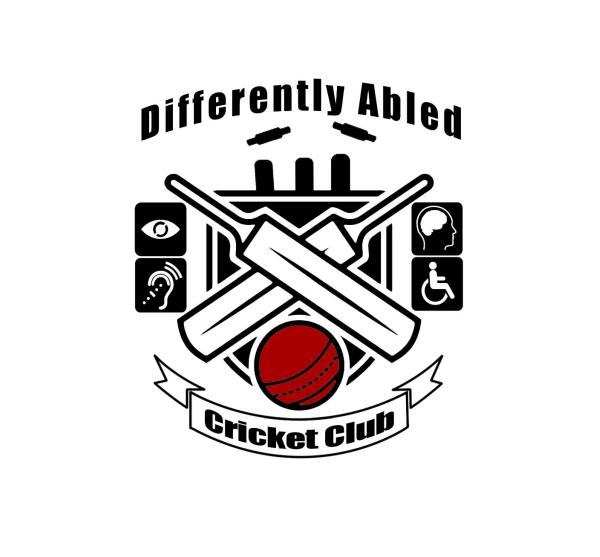
In 2017 the Differently Abled Cricket Club (DACC) adopted the principle of not being ashamed of who we are and hence the name Differently Abled Cricket Club, the club felt it’s time we have our own identity and independence and focus on the awareness of LSEN (Learners with Special Educational Needs) which includes the Blind, Deaf, Intellectually Impaired and Physically Disabled."
The home of Differently Abled Cricket Club is located at FH Odendaal High School, we have embarked on a new journey and with the relationship we have built with the school they have given us permission to make the school our new home. We are in the process of building a clubhouse at the school and we also want to build a cricket academy specifically for differently abled players. Currently we are in the process of getting junior teams going as this is the feeding system for the club going forward.
With our new constitution we not only want to develop the cricket skills of players but also want to create a skills development program for our cricketers in order to attain the required skills for the workplace.
Please Support this Club!
Contact Differently Abled Cricket
For more information please contact Christo Pelzer on his Mobile: +27 82 998 4568 or Email: admin@dacc.co.za
Address: 200 Baviaanspoort Road, Derdepoort, Pretoria, 0186 or visit their web site at: www.dacc.co.za
